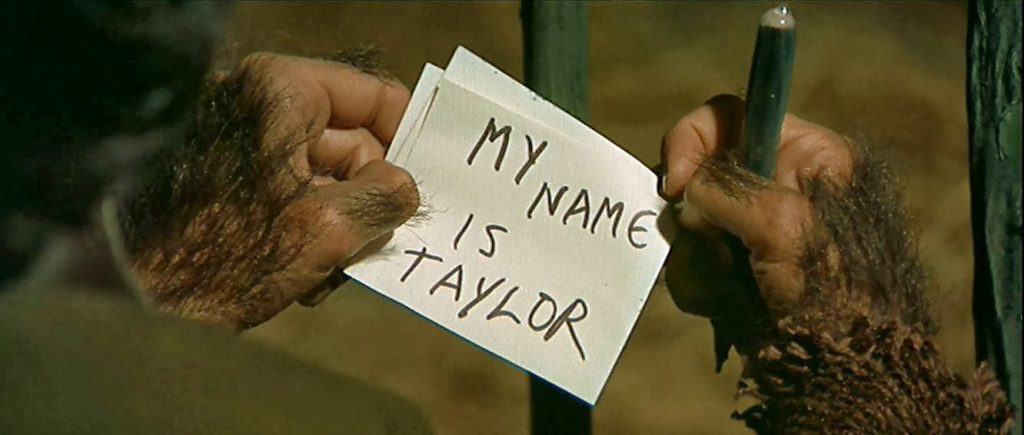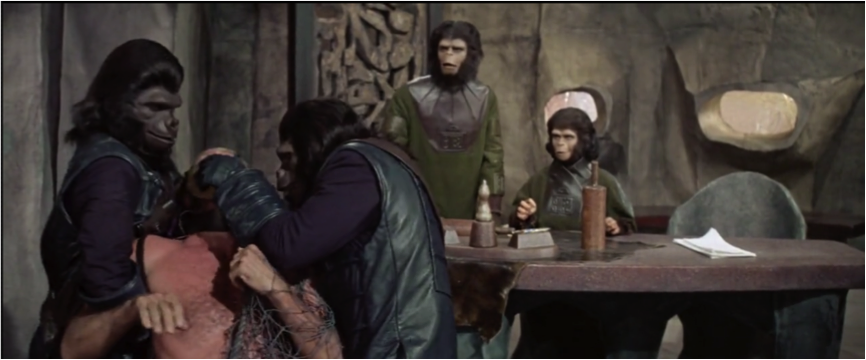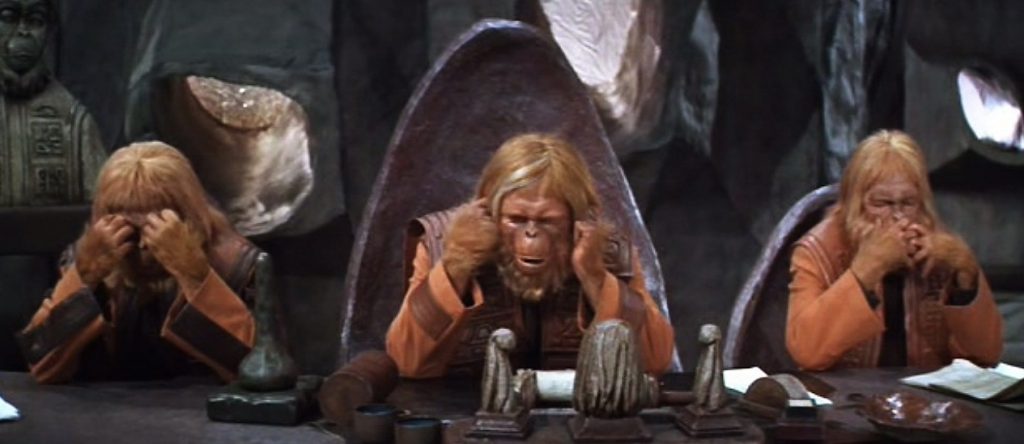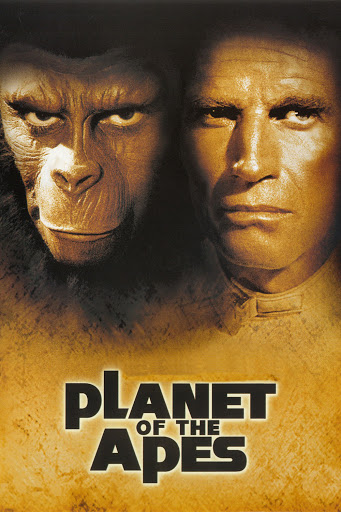Planet of the Apes (1968), dir. Franklin J. Schaffner
It is from the Planet of the Apes’s first encounter with its ‘more or less human’ characters that we are made aware of their muteness; something that shapes the human/animal relations throughout the film. In his ignorance of the subverted hierarchy the film explores, Taylor, the main character, assumes his superiority to them, claiming that ‘if this is the best they’ve got … in 6 months we’ll be running this planet’. Taylor’s capture destabilises this superiority by robbing him of the ability to speak; as the film progresses, it becomes increasingly apparent that Planet of the Apes complicates the ways in which language and power intersect throughout.

Figure 1: Taylor’s ability to communicate his identity leads to his favourable treatment by Dr Zira and Cornelius, and enables the destabilising of ape/human hierarchy.
The ability of the apes to silence the humans is essential to their power to ‘other’ them, reinforcing their authority from a more ‘civilised’ position. The introduction of Taylor, who breaks the humans’ silence, undermines the notion that humans are less advanced and allows him to expose Dr Zaius’s cover up. This is achieved through his ability to acknowledge his own identity, made apparent in the court scene after the discovery of Landon’s lobotomy. In capturing Taylor in a net and dragging him along the floor, he is put into a position that places him in line with the other humans. This shot captures him as physically below the apes and he appears to have been successfully confined; however, it is through his language that he is able to challenge their authority, as he shouts: ‘you…took his identity and that’s what you want to do to me!’ The physical silencing of Landon appears to be most threatening in its robbing of his identity, and it is on this that Taylor places the most importance. Taylor’s unveiling of the truth is met by the president’s order to ‘gag the animal’. Although he is yet to have his speech surgically removed from him, the act of physically gagging him encompasses the wider notion of silencing that appears throughout the film.

Figure 2: Taylor is physically silenced as the apes gag him.
Taylor’s physical silencing foregrounds another act of silencing that takes place in this scene: as Cornelius reveals his findings, he is silenced by a call of ‘objection!’ from the president. Similarly, when Dr Zira suggests that there is ‘no physiological defect to show why humans are mute’, this is also objected to. They are not physically silenced, as the humans are, but silenced through the language of the legal system for endeavouring to give humans a voice. This reveals that the ape/human order is not the only hierarchy: there are also hierarchical structures, enforced by speech, that exist within ape civilisation. It is also impossible to ignore the racial nature of this hierarchy, as the whiter skinned orangutans hold the most power (the ruling elite), compared to the darker skinned chimpanzees (the professional class) and the darkest skinned, mute gorillas (the lower class).

Figure 3: See no evil, hear no evil, speak no evil. Parody of the ‘three wise monkeys’.
Throughout Planet of the Apes, speech is used as a means of asserting control: by Taylor to suggest his assumed superiority to the other humans, and by the apes to silence those that are below them. Despite the ape’s use of gagging to silence Taylor, speech proves not only to be key to the ape’s power, but also a way to destabilise it. This challenges a wider assumption that dictates that, because humans have language and animals do not, humans may speak on their behalf. However, beyond the film, this is complicated in the necessity of Taylor’s speech to the audience’s sympathies. After all, had he not been able to speak or communicate, Dr Zira and Cornelius would not have been able to fight on his behalf. The film’s truly radical potential is ultimately undermined by Taylor’s linguistic capacity; if we were to see the humans of the film as representing animals in real life, it would portray them all as mute (or, at least, as unable to use language we could understand), and it is this that confuses the film’s use of language and its intersection with power.
